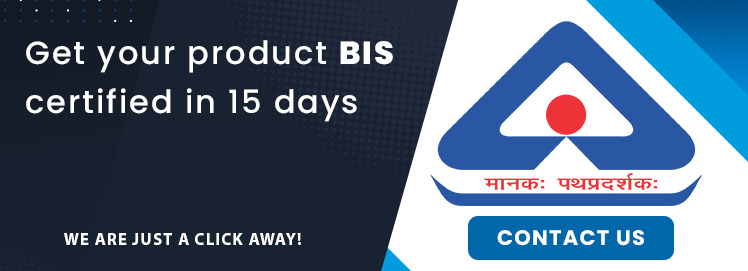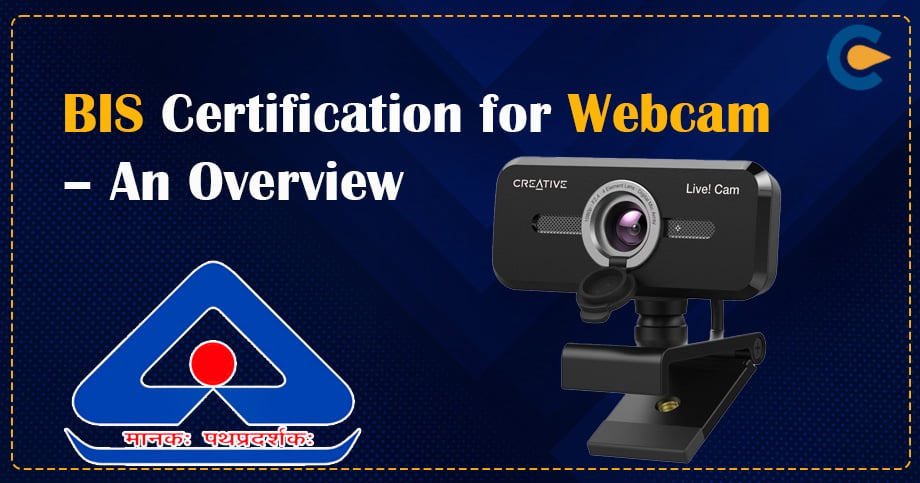On April 21, 1895, in the United States, Woodville Latham and his sons Otway and Grey created the first movie projector. the brilliant innovation and imagination of New Yorker Gene Dolgoff, who created the LCD projector and digital projection. The projector’s primary benefit is that it may be utilised for entertainment. Manufacturers and importers of goods covered by the Compulsory Registration Order (CRO) are required to obtain registration numbers under the Compulsory Registration Scheme (CRS), in accordance with BIS, according to a notification from the Ministry of Electronics and Information Technology (MeitY). Before launching or selling their products in the Indian Markets, projector manufacturers and importers are obliged to test and certify their products under the CRS (Compulsory Registration Scheme). According to BIS, projectors must undergo testing and be registered under IS 13252 (Part 1). Manufacturers and importers are not permitted to sell their goods without first undergoing testing and registering with the relevant government agencies. As you are all aware, the Government of India and BIS have established the BIS Registration scheme’s need to register electronic devices. In large-group settings like schools, conferences, and business meetings, projectors are often employed. In light of this, BIS Certification for projectors is required.
An Overview of BIS ISI
The agency that awards BIS certification is called the Bureau of Indian Standards (BIS) in India. The BIS certification guarantees to the customers that any product is of high quality, dependable, and safe. The BIS is active in a variety of projects, including setting standards, testing, hallmarking, and calibration systems, as well as product certification.
Manufacturers may use the ISI mark to label their products after receiving BIS certification.
Indian Standards Institute is referred to as ISI. The Bureau of Indian Standards’ recognised trademark for a variety of products is the ISI Mark. This ISI Mark has been recognised as a symbol of quality, security, and dependability since 1955. It ensures that the product conforms with Indian Standards (IS), which were developed by the Bureau of Indian Standards and the country’s national standard body (BIS).
- The basic purpose of BIS
- The BIS is a national standards organisation that promotes and controls standards for goods and products in India. In order to analyse the samples of the items during the preliminary and surveillance activities, the BIS has established eight central, four regional, and three branch laboratories in India. Despite being optional, the government promotes BIS certification for products for the following reasons: It protects the general public’s health.
- It offers quality control.
- It safeguards consumers from dangerous goods
- It increases customer assurance.
Products that Come Under BIS Certification
Different product categories must be BIS certified in order to be sold (Scheme-I). There are 380 goods in all that must be BIS certified. The list of goods that must be certified is provided below. The mandatory BIS registration was announced by the Ministry of Electronics and Information Technology.
Any manufacturer can choose to have their products BIS certified, which shows customers that the products are of a high calibre and up to standards. The list of 738 goods for which a producer may apply for optional BIS certification using a streamlined process is shown below.
Under the Compulsory Registration Scheme (CRS), the Ministry of Electronics and Information Technology (MeitY) announced that some electronics and IT products will require mandatory BIS registration. The list of 77 items covered by the Compulsory Registration Scheme is shown below.
What Are The Basic Requirements For BIS Certification For Projectors?
The requirements for obtaining a BIS Certification for projectors are as follows:
- The product must meet the standards of the Indian Standard Specification.
- BIS licencing is only available to factories that produce completed goods. The Distributor/Retailer does not get it.
- If a firm has many facilities, each of which is located in a distinct geographic region, each plant site must submit a separate application.
- To test the product in accordance with the relevant ISS, the laboratory must be fully furnished with product testing machinery and qualified quality control employees.
- All production and testing equipment must be situated on the factory grounds in accordance with ISS guidelines and the relevant SIT.
- Technical requirements may be found in “Product Manuals” for all products covered by the Product Certification Scheme. All sampling guidelines, a list of test equipment, a Scheme of Inspection and Testing (SIT), a description of the scope, and other details are included in the handbook.
- To reduce their chances of being turned down, applicants can utilise this Product Manual for BIS Certification for Projectors to be ready for the audit and application submission.
Documents Required To Get A BIS Certification for Projectors
Below is a list of the supporting documents that must be submitted with a projector certification application to BIS. The necessary paperwork is both very particular and broad and it comprises the following:
- Lab Test Reports in accordance with Product Standards
- Documents for Factory Registration
- Flowchart for the manufacturing process
- Internal Testing Resources
- Information on approved signers and associated papers.
Procedure for BIS Certification for Projectors
The projectors in India that go through the ISI Mark Certification process go through the following steps:
- Selection of pertinent product codes
- Completed online ISI Mark Registration application form with the needed documentation
- Factory inspection by a BIS-approved auditor
- Submission of a Sample Report by a BIS-approved laboratory
- Licences granted by the BIS Authority
Additionally, projectors in India can obtain BIS certification through one of two different processes.
- The Normal Procedure:
As part of the normal process to get the BIS certification for projectors, the following stages will be followed:
- The applicant must first prepare for the BIS Certificate requirements, including setting up internal labs, producing goods in compliance with Indian Standards, and assembling other essential paperwork.
- A BIS officer will carry out the product and industry inspection procedure alongside the manufacturer or industry.
- Following the inspection, sealed samples of the items are delivered to testing facilities recognised by BIS.
- The BIS will only approve a product if it satisfies all of the test criteria. Finally, within 60 to 65 days of receiving the application, the authority gives the BIS certificate to Indian Manufacturers.
- The Simplified Procedure
To obtain the BIS certification for projectors, the following stages must be completed as part of a simplified process:
- The applicant initially submits a report of the samples that BIS has examined and approved in compliance with Indian Standards.
- The applicant must next submit a BIS online registration form together with the BIS Certification fee and any other required sets of documentation.
- The BIS representative will assess items alongside the factory/industry during the application evaluation.
- Following the inspection, sealed samples of the goods are sent to labs that have been approved by BIS for testing.
- The BIS will only approve it when it meets all test criteria. Typically, 35 to 40 days after the application is submitted, a BIS certificate is issued.
BIS ISI Certification Process for Foreign Manufacturers
According to Scheme-I of Schedule-II of the BIS Act, 2016, and the (Conformity Assessment) Regulations, 2018, the FMCS (Foreign Manufacturers Certification Scheme) is a scheme administered by the Bureau of Indian Standards since 2000 for foreign manufacturers. With the help of this programme, producers and applicants from outside can use the standard mark, commonly known as the ISI Mark, to market their products in India. The only organisation authorised to issue BIS certificates to overseas manufacturers is the Foreign Manufacturers Certification Department (FMCD).
Mandatory Documents Required For FMCS ISI Mark Certification
Projector paperwork is not too complicated. The applicant must have the following necessary papers before beginning the project:
- Registration paperwork for a factory or business
- A flowchart illustrating the production process
- Internal manufacturing capabilities and, if required, a manufacturing operation outsourcing arrangement.
- Sufficient testing facilities
- Quality Assurance Data about the parameters
Process of Grant of BIS Licence under FMCS
The following organised processes will assist in granting an FMCS licence for projectors as part of the FMCS BIS certification process:
- Submit the application:
- Assemble the necessary paperwork
- Apply online with BIS and submit the necessary paperwork in hard copy to the FMCS department.
- The application will be verified by BIS authorities.
- The applicant will receive an acknowledgement number for future use.
- Audit/Inspection:
- The BIS representative will arrange to visit the applicant’s factory.
- The inspection/audit charge must be paid by the applicant.
- BIS officers will then check your in-house lab’s product, testing equipment, and manufacturing process.
- Finally, the BIS officer will collect the sample, seal it, and send it for analysis to a separate laboratory.
- Sample Testing:
- The collected sample will be delivered to a BIS-approved laboratory.
- The test report will be delivered to BIS (FMCS).
- Grant of license:
- The applicant must pay the licence fee, the advance minimum marking charge, and any unpaid balance.
- Finally, a letter granting a licence will be sent out.
Validity of BIS Certification for Projectors
The BIS certification for Projectors that it has granted is legitimate for two years. When there hasn’t been a change to the relevant items or the required standards, the makers can renew their BIS certification. The BIS certificate that has been renewed will be good for a minimum of one (1) year and a maximum of five (5) years. A yearly advance minimum licencing charge is required for the BIS certificate to be renewed. However, if the BIS certification renewal application is submitted after the certificate’s expiration date, the applicant must pay a late fee of INR 5000.
Conclusion
A national Standards organisation created by the Bureau of Indian Standards Act of 1986 is the Bureau of Indian Standards, or BIS for short. Later, the Bureau of Standards Act 2016 repealed the Act, and BIS was reinstated as India’s National Standards Body. The agency was established primarily for the aim of identifying, developing, and promoting Indian Standards with reference to various items. Before establishing the presence of its goods on the Indian market, the foreign company must also secure the BIS certification. Through standardisation, testing, and certification, the BIS has benefited the national economy in a number of ways, including by offering high-quality products that are safe for both internal and external consumption, reducing consumer health risks, encouraging export and import substitutes, and more.













